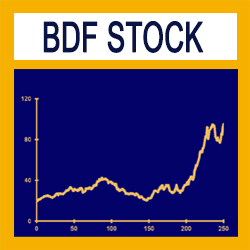
New on SimTrade?
Register for free and join the SimTrade community.
By connecting to this website you accept Terms of use.
 General meeting of Blé de France
General meeting of Blé de France
At the start of the simulation, you own an account worth €100,000 in cash and 1,000 Blé de France shares. As a SimTrader, your goal in this simulation is to maximize your trading gains. In this simulation, you can send all types of orders to the market: market orders (MKT), limit orders (LMT), best limit orders (BL), stop orders (STP) and stop limit orders (STL). The duration of the simulation is initially set to 10 minutes, which corresponds to a 24-hour trading day. Using the timeline, you can increase or decrease the simulation speed at any time. |
Your grade for this simulation (100 points) takes into account the following elements:
If you launch the simulation several times, the simulation grade retained is the best grade you obtained on all the simulations (grade which takes into account your trading performance, your trading activity and your MCQ test for each simulation). |
Blé de France is a French wheat producer. The firm was created in 1780 by the Turgot de la Beauce brothers, nephews of the famous financial controller of the King of France Louis XVI. The firm is still managed by a descendant of the founders, Charles-Louis Turgot de la Beauce, who is an emblem of the cereal industry in France. Blé de France fields are mainly located in the Beauce area in the center of France. The sales structure is composed of two parts:
|
 |
The ticker symbol for Blé de France shares traded on the market is BDF. Blé de France was introduced in the French stock market in the 1970s. During the past few years, its stock price soared. This strong price increase can be partly explained by the strong increase of the wheat prices at the world level. Over the recent period, the stock price of BDF stocks has fluctuated around € 100 depending on the news flow about the company and the price of wheat. |
 |
Today, at 11:00 am (French time), Blé de France invites its shareholders for its annual General Meeting. Charles-Louis Turgot de la Beauce, President of Blé de France, will announce the financial results over the past year and will present the business perspectives of the firm. A dozen of financial analysts follow the BDF stock and participate to the market consensus. The market expects earnings per share of €10. Large food-processing firms may also be interested in Blé de France in order to penetrate the sector. Rumors are flying around, and it should be clearer by the end of the day. What is the firm going to announce? How will the market react to the news? And especially how will you react? Those are the questions... |
We present below the PER model. PER stands for Price/Earnings ratio. The PER is defined by the following relation: The earnings per share (EPS) is the earnings of the firm divided by the number of shares issued by the firm. The latest announced earnings (last quarter) or an expectation of future earnings are often used. For the Blé de France firm, the PER for BDF stocks is equal to 10. The estimation of the stock price of shares issued by a firm can be obtained by using the PER model and by assuming a constant PER over time: The PER model is a simple model to value firms, which is quite used in practice. For the Blé de France company, the stock price of BDF stocks has been fluctuating for a while around €100. Such a price is in line with a Price/Earnings ratio of 10 and a market expectation for earnings per share of €10. Today, during the General Meeting of Blé de France, which starts at 11:00 am, Charles-Louis Turgot de la Beauce will announce the earnings per share for Blé de France. If the announced EPS is different from the market expectation of €10, the BDF stock price may change after the announcement. It may decrease if the announced value is lower than the expected value, or it may increase if the announced value is higher than the expected value. The table below gives the estimation of the BDF stock price for different values of earnings per share according to the PER model.
This table may be useful to estimate the new price of BDF stocks after the announcement of EPS during Blé de France General Meeting. |
The Blé de France GM simulation deals with the firm valuation. How is a firm valued? How is the value of the firm reflected into the stock price? This simulation looks at a key concept in finance: earnings per share. Teaching goals: the Blé de France GM simulation will be the opportunity to understand how a firm is valued. Learning objectives: this simulation will help you to learn the following elements of finance:
Before or after launching this simulation, you can learn more on information in financial markets by taking related courses to the simulation. Download the case note to help you during the simulation. |
 |
Gabriel Eschbach « The key is knowing how to process information. The market is anticipating what will happen, but things never happen as expected. The market reacts to the rumor and adjusts to the news. And you! What do you expect? How will you react? What are you going to do? » |
|
Professor François Longin « Before starting the simulation, remember that the market is always right; and that the market is always right even when it is wrong... » |